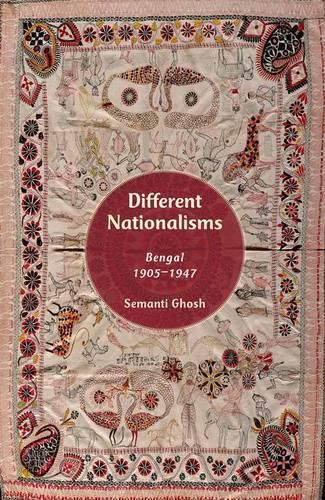Readings Newsletter
Become a Readings Member to make your shopping experience even easier.
Sign in or sign up for free!
You’re not far away from qualifying for FREE standard shipping within Australia
You’ve qualified for FREE standard shipping within Australia
The cart is loading…






The period between the partition of Bengal in 1905 and the Partition of India in 1947 was witness to a unique experience of ‘imagining’ nations in Bengal. With neither the Bengali Muslims nor the Bengali Hindus envisioning homogenous ideas about nationhood, many contesting and alternative visions emerged, both within and between the two communities. These ‘other’ nationalisms were not ‘anti-national’, but creeds of either a ‘federal Indian nation’ with ‘regional autonomy’, or a ‘regional nation’ on its own strength.
In Different Nationalisms, Semanti Ghosh goes beyond the Muslim-Hindu and nationalism-communalism binaries to reveal an unfamiliar terrain of hidden contestations over the concept of nation in colonial Bengal. For several of these competing ideologies, Partition, rather than being an expected or even desired outcome, was an anti-climax in their long-drawn battle for a nation.
$9.00 standard shipping within Australia
FREE standard shipping within Australia for orders over $100.00
Express & International shipping calculated at checkout
The period between the partition of Bengal in 1905 and the Partition of India in 1947 was witness to a unique experience of ‘imagining’ nations in Bengal. With neither the Bengali Muslims nor the Bengali Hindus envisioning homogenous ideas about nationhood, many contesting and alternative visions emerged, both within and between the two communities. These ‘other’ nationalisms were not ‘anti-national’, but creeds of either a ‘federal Indian nation’ with ‘regional autonomy’, or a ‘regional nation’ on its own strength.
In Different Nationalisms, Semanti Ghosh goes beyond the Muslim-Hindu and nationalism-communalism binaries to reveal an unfamiliar terrain of hidden contestations over the concept of nation in colonial Bengal. For several of these competing ideologies, Partition, rather than being an expected or even desired outcome, was an anti-climax in their long-drawn battle for a nation.